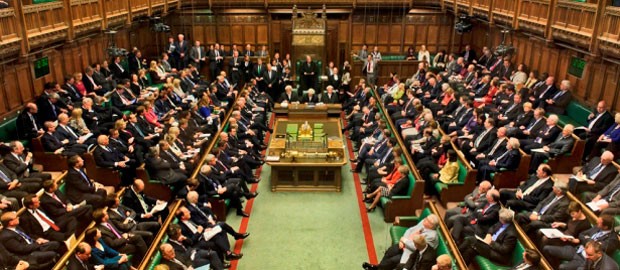By Ben Kerrigan-
British Mps overwhelmingly supported a tougher tier system of coronavirus restrictions which begin on Wednesday when the Uk lockdown ends.
The measures, which will come into force at 00:01 GMT, were supported by 291 votes to 78. Rebel Mps said the measures were unnecessary and disproportionate. Conservative Mp Mark Harper, who chairs the lockdown-sceptic Covid Recovery Group of Tory MPs expressed regret.
He said they “very much regret that in a moment of national crisis so many of us felt forced to vote against the measures that the government was proposing”.
He added that the government “must find a way to… end this devastating cycle of repeated restrictions and start living in a sustainable way until an effective and safe vaccine is successfully rolled out across the population”.
His views were supported by Sir Graham Brady, the chairman of the 1922 Committee of backbench Tory MPs, who also voted against the plans, saying that they undermine the fundamental liberties of the British people.
Fundamental Liberties
Brady, a powerful and influential member of parliament was among the minority Mps to strongly oppose the measures voted in by parliament today. He said the measures were unnecessary, another way of saying his fellow Mps were imposing measures in a way that is unreasonable. He did not address the case made for rising infections and deaths in various parts of the Uk. He said:
“If government is to take away fundamental liberties of the people whom we represent, they must demonstrate beyond question that they’re acting in a way that is both proportionate and absolutely necessary.
“Today, I believe the government has failed to make that compelling case. Mr Brady is of the strong view that there are no grounds for undermining the civil liberties of the British people, and that the tier system erodes those freedoms.
The voting revealed 55 Tory MPs who voted against the government plan – the largest rebellion of Boris Johnson’s premiership. The voting success was bolstered by the co-operation from Labour, after many of their Mps supported the strict measures.
However, Foreign Secretary Dominic Raab said the new tiered system would help “avoid another lockdown”, and “help the UK bridge into the spring, where we hope a vaccine will move us into a whole different place”.
A further 16 Conservatives abstained, with many of them having expressed concerns about the tougher tiers in the Commons debate that led up to the vote.
A government spokesman said they welcomed the result of the vote, which will “help to safeguard the gains made during the past month and keep the virus under control”.
But they also said the government would “continue to work with MPs who have expressed concerns in recent days”.
Labour MPs were ordered to abstain in the vote, with party leader Sir Keir Starmer saying he recognised restrictions needed to continue, but he was “far from convinced” the new system will work. He also said help for businesses moving into the toughest tiers was “nowhere near sufficient”.
The government announced last week that its tougher three tiers to tackle the virus would come into force when England’s current lockdown ends in the early hours of Wednesday.
It will allow ministers to place areas into one of three tiers – medium (one), high (two) and very high (three) – but the majority of the population will face the higher range of restrictions.
In tier two, people are not allowed to mix with anyone outside their household or support bubble indoors, although they can socialise in groups of up to six outdoors.
And in tier three, people must not mix with anyone outside their household or support bubble indoors, or at most outdoor venues.
The tiers will be reviewed every two weeks and Mr Johnson has promised MPs a vote on whether to keep the system before 2 February.
Pub Funding
Johnson offered an additional £40m for some pubs in tiers two and three when he opened the debate.
He also said he appreciated the “feeling of injustice” many felt at their tier allocation, and pledged to “look in granular detail” at the “human geography” of the virus when the tiers are reviewed.
Closing the debate for the government, a tearful Health Secretary, Matt Hancock, described how he had been personally affected by the virus, after his step-grandfather died from Covid-19.
“We can afford to let up a little, we just can’t afford to let up a lot,” he told MPs.
“Let that be the message that goes out from this House. We know through repeat experience what happens if this virus gets out of control.

